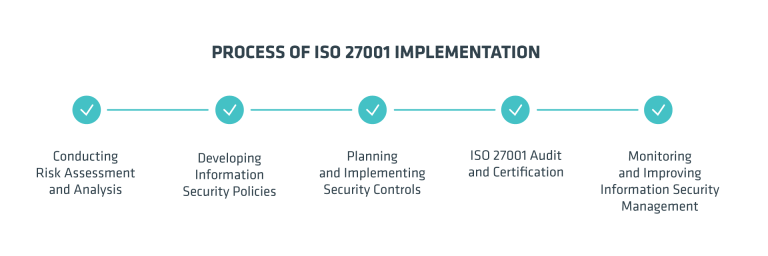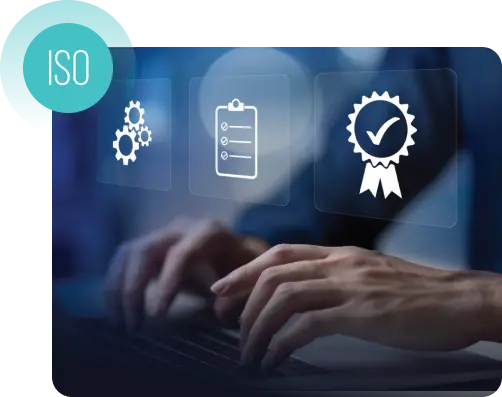
ComCERT supports organizations throughout the entire regulatory compliance process — from audits and documentation to full audit readiness.
Compliance plays a critical role in every organization’s strategy, directly impacting both stability and long-term growth. Ensuring alignment with, and continuously monitoring compliance with, regulations such as the NIS2 Directive, DORA, and GDPR helps mitigate the risk of sanctions and builds trust among partners and stakeholders.

ComCERT delivers projects focused on implementing the requirements of these regulations. We provide full support at every stage — from legal compliance audits and gap analysis to the implementation of tailored recommendations.
Our services include, but are not limited to:
The Act on the National Cybersecurity System (UoKSC) transposes the NIS2 Directive into Polish law, introducing a range of new information security requirements for entities operating on the Polish market.
The provisions of the Act on the National Cybersecurity System (UoKSC) aim to ensure:
– the uninterrupted delivery of critical and important services;
– a sufficiently high level of security for the infrastructure used to provide these services;
– effective coordination among institutions responsible for monitoring and responding to information security incidents.
The Network and Information Systems Directive 2 (NIS2) updates and expands the EU’s cybersecurity framework to reflect increasing digitalization and an evolving threat landscape.
NIS2 introduces legal measures aimed at raising the overall level of cybersecurity across the EU by ensuring:
– a high common level of cybersecurity within the Union;
– effective cooperation between Member States;
– binding obligations for essential and important entities in sensitive sectors.
The Directive extends cybersecurity requirements to new sectors and entities — including food and beverage production, waste management, pharmaceuticals, healthcare, and the chemical industry, among others. It also introduces a risk-based approach, stricter incident reporting obligations and places greater emphasis on the accountability of the management bodies of regulated organizations.
DORA introduces requirements for the operational resilience of financial institutions in the face of digital threats, with a strong focus on business continuity and digital risk management. As an EU regulation, it has a general scope, is fully binding, and is directly applicable in Poland.
DORA aims to ensure that financial market participants can maintain secure and reliable operations, even in the event of significant information and communication technology (ICT) disruptions.
The General Data Protection Regulation (GDPR) is the primary legislation governing the processing of personal data within the European Union.
It requires organizations to protect personal data by implementing appropriate technical and organizational measures.
It grants individuals several rights, including the right to access, rectify, and erase their personal data. The introduction of the GDPR has fundamentally changed the approach to data protection, requiring organizations to continuously monitor and adapt their personal data processing procedures.
Achieve ISO 27001 certification with expert support from ComCERT — every step of the way.

An Information Security Management System (ISMS), in accordance with ISO/IEC 27001, is a comprehensive framework for managing information security within an organization. The ISMS is designed to protect information by identifying, assessing, and mitigating information security risks.
Our services include audits that identify areas for improvement, support in designing and implementing an ISMS tailored to the organization’s specific needs, and staff training to raise awareness of information security principles and best practices.
As part of the certification process, we also provide support during the certification audit itself.

ComCERT provides comprehensive support throughout the ISO 22301 certification process..
ComCERT also provides support in implementing a Business Continuity Management System (BCMS) in accordance with ISO 22301.
A BCMS enables organizations to maintain operational continuity in the face of major disruptions — such as system failures, natural disasters, or cyberattacks.

The first step is to design and implement a Business Continuity Management System (BCMS) tailored to the organization’s specific needs. ComCERT supports this process by helping to develop policies, procedures, and business continuity plans in line with ISO 22301 requirements. We then conduct preliminary and internal audits to identify areas for improvement and monitor the effectiveness and progress of continuity measures. Additionally, we offer employee training to raise awareness and build competence in business continuity management. We also organize simulation workshops to test and refine BCMS procedures in practice.
As part of the certification process, ComCERT assists in preparing the required documentation and provides support during the certification audit — ensuring full compliance with ISO 22301 standards.
Enhanced protection against cyberattacks through rigorous risk management and incident response standards.
Meeting regulatory requirements ensures compliance with national and EU laws — a key factor in avoiding financial penalties and legal sanctions.
A structured approach to risk identification, analysis, and management significantly reduces the likelihood of security incidents.
Compliance with these regulations builds trust among customers and business partners, positively impacting the company’s reputation in the market.
Implementing standards promotes operational efficiency through structured security management procedures, improving work organization and overall productivity.

Leave your contact details — we’ll get back to you!